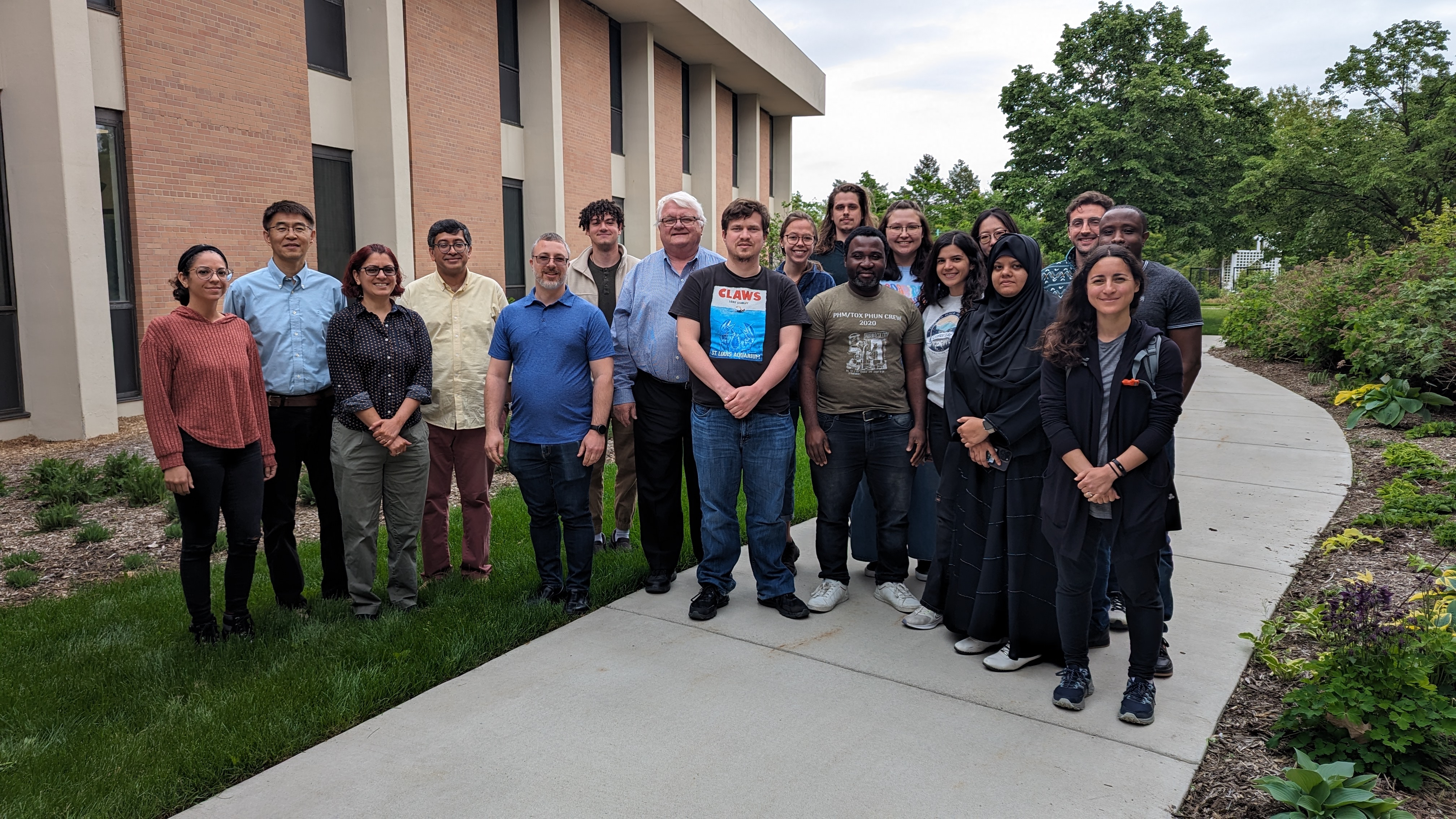MSU SRC Hosts Computational Systems Toxicology: Modeling and Informatics Workshop
June 20, 2024
 The MSU SRC recently hosted the Computational Systems Toxicology: Modeling and Informatics (CSTMI) Workshop on May 6 - 9, 2024 at the Food Safety and Toxicology Building on Michigan State’s campus. Course instructors were Sudin Bhattacharya and Rance Nault from Michigan State University, Qiang Zhang from Emory University, and Eberhard Voit from the University of Texas at Dallas.
The MSU SRC recently hosted the Computational Systems Toxicology: Modeling and Informatics (CSTMI) Workshop on May 6 - 9, 2024 at the Food Safety and Toxicology Building on Michigan State’s campus. Course instructors were Sudin Bhattacharya and Rance Nault from Michigan State University, Qiang Zhang from Emory University, and Eberhard Voit from the University of Texas at Dallas.
The CSTMI workshop was attended by 15 students and covered (1) dynamical systems modeling techniques for quantitative investigation of biological systems responses to perturbations at the cellular and tissue levels, and (2) analysis of high-dimensional -omics data toward classification of cell types, inference of biological pathways, and prediction of cellular outcome trajectories. Upon completion of the workshop, students will have learned:
- Common network motifs in signal transduction and gene regulatory networks that underlie cellular and physiological systems-level behaviors, including signal amplification, homeostasis, adaptation, threshold responses, binary fate decision-making, and biological rhythms.
- Molecular feedback and feedforward circuits comprising genes and proteins that give rise to various dynamic and dose-response behaviors. Examples include cellular stress responses, differentiation, cell cycle dynamics, body-level regulation, and others.
- Use of these simulation techniques for developing quantitative adverse outcome pathway (AOP) models to assist our understanding and prediction of nonlinear dose response behaviors to environmental toxicants and drugs, and to help bridge the in vitro to in vivo extrapolation (IVIVE) data gap in New Approach Methodologies (NAM).
- Commonly used dimension reduction, visualization, clustering, and pseudo-time trajectory algorithms for -omics data. Examples include t-SNE, UMAP, Monocle, and RNA velocity methods for single-cell RNA-seq data analysis.
- Basic programming skills in R.
- Biological data storage, sharing and management.
The workshop comprised lectures and hands-on computer exercises in R and was a collaborative effort between the Computational Modeling Core, the Research Experience and Training Coordination Core, and the Data Management and Analysis Core of the MSU Superfund Research Center.

